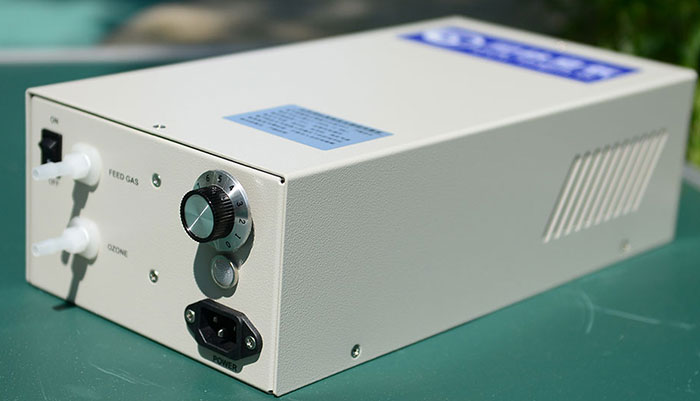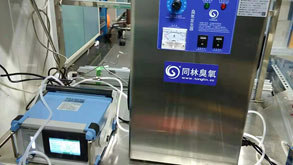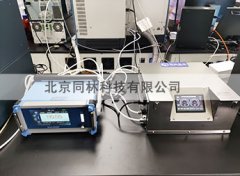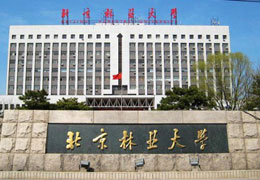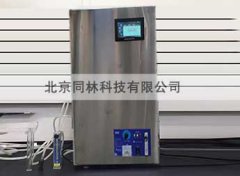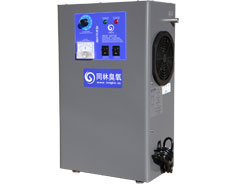
首頁 > 臭氧知識 > 臭氧應(yīng)用 > 微填充床反應(yīng)器中苯乙烯臭氧分解連續(xù)合成苯甲醛
微填充床反應(yīng)器中苯乙烯臭氧分解連續(xù)合成苯甲醛
為了研究系統(tǒng)壓力的影響,使用的是一臺臭氧發(fā)生器(Atlas P30)可以產(chǎn)生高達(dá)0.5 MPa的高壓。
摘要:
由于微反應(yīng)器固有的安全性和較高的傳質(zhì)/傳熱效率,近年來連續(xù)微反應(yīng)技術(shù)在危險(xiǎn)化學(xué)中得到了廣泛的應(yīng)用。在這項(xiàng)工作中,以苯甲醛的合成為模型反應(yīng),開發(fā)了一種基于微型填充床反應(yīng)器 (µPBR) 的連續(xù)臭氧分解系統(tǒng)。研究了操作變量(如攪拌時(shí)間、臭氧/烯烴摩爾比、反應(yīng)壓力、反應(yīng)溫度和液體停留時(shí)間)對烯烴轉(zhuǎn)化率和產(chǎn)物分布的影響。根據(jù)實(shí)驗(yàn)結(jié)果,很佳反應(yīng)條件為:攪拌時(shí)間1 h,臭氧與烯烴的摩爾比1.2,反應(yīng)壓力0.1 MPa,反應(yīng)溫度為-15~10℃,而不是低溫。 (< -50℃)通常用于批量操作。此外,在 3.8-30.8 s 的液體停留時(shí)間下,觀察到苯乙烯完全轉(zhuǎn)化,苯甲醛收率約為 93%。因此,與傳統(tǒng)方法相比,基于 µPBR 的流動臭氧分解技術(shù)能夠以可持續(xù)、安全和有效的方式將烯烴氧化為醛/酮。
原文
Continuous synthesis of benzaldehyde by ozonolysis of styrene in a micro-packed bed reactor
Journal of Flow Chemistry ( IF 2.7 ) Pub Date : 2022-05-18 , DOI: 10.1007/s41981-022-00220-6
Fengyan Lou, Qiang Cao, Chenghao Zhang, Ning Ai, Qining Wang, Jisong Zhang
Due to the inherent safety and high mass/heat transfer efficiency of microreactor, the continuous micro-reaction technology has been widely applied in hazardous chemistry recently. In this work, a continuous ozonolysis system based on micro-packed bed reactors (µPBRs) was developed with the synthesis of benzaldehyde as a model reaction. The effects of operating variables (e.g., stirring time, molar ozone/olefin ratio, reaction pressure, reaction temperature and liquid residence time) on the olefins conversion and product distribution were investigated. Based on the experimental results, the optimum reaction conditions are as follows: stirring time 1 h, molar ratio of ozone to olefin 1.2, reaction pressure 0.1 MPa, and the reaction temperature ranging from − 15 to 10℃, as opposed to the low temperature (<-50℃) routinely employed for batch operation. In addition, the full conversion of styrene and a benzaldehyde yield of ~ 93% was observed with the liquid residence time of 3.8–30.8 s. Consequently, the flow ozonolysis technique upon µPBRs allows for a sustainable, safe and efficient approach to oxidize olefins to aldehydes/ketones compared to traditional methods.
標(biāo)簽:臭氧分解(2)
經(jīng)典成功案例
相關(guān)文章:
實(shí)驗(yàn)現(xiàn)場


